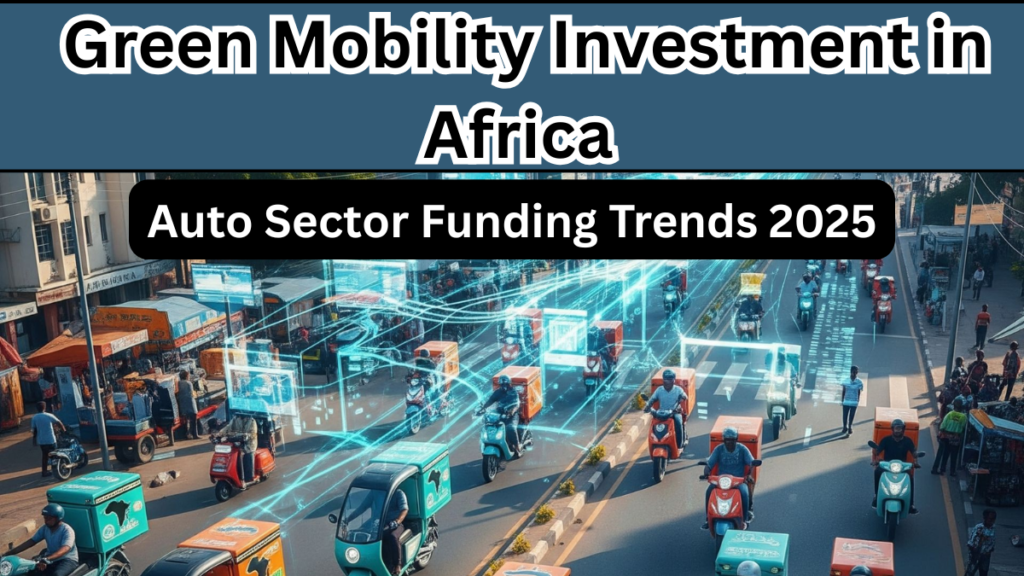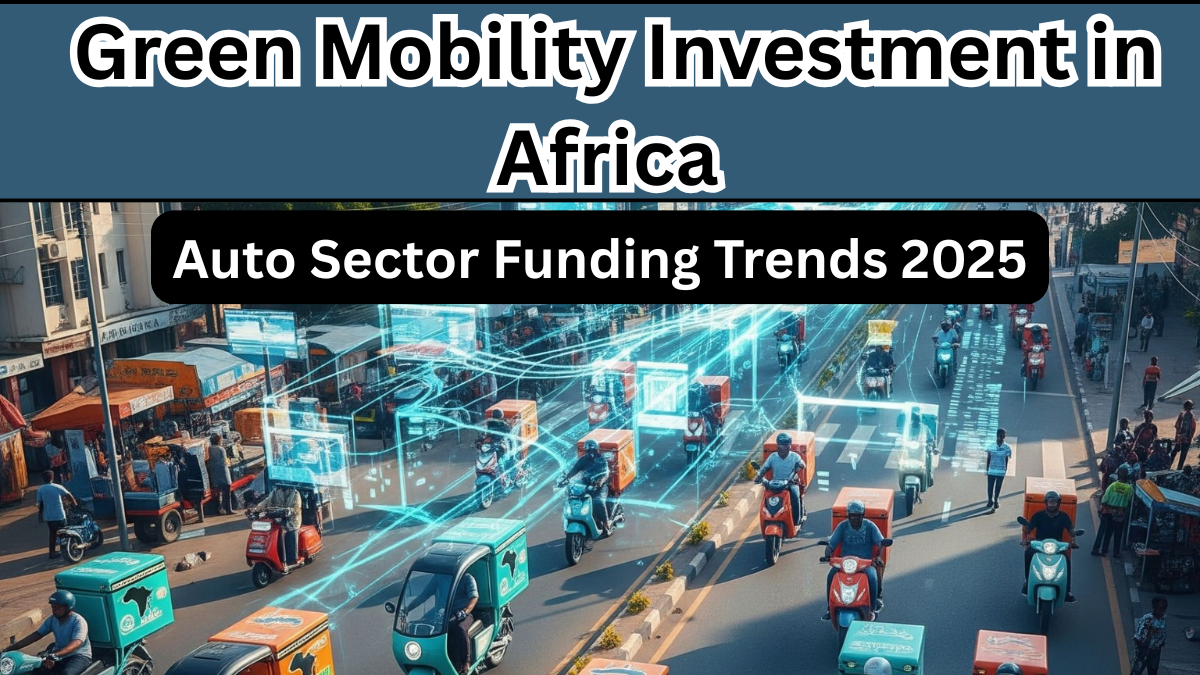As Africa moves toward a cleaner and more sustainable future, green mobility funding is gaining remarkable momentum. In 2025, there’s a clear shift in auto sector investment, with a focus on electric vehicles (EVs), renewable infrastructure, and eco-conscious transport solutions.
Here’s how this investment wave is reshaping mobility across the continent.

Why Green Mobility is Africa’s New Driving Force
Africa’s booming cities and increasing demand for transportation are pushing the region to rethink how people move. Traditional fuel-powered vehicles are gradually being replaced by more sustainable alternatives, thanks to a mix of environmental urgency and economic practicality.
Key drivers behind the green mobility wave:
-
Rising air pollution and traffic congestion in urban areas
-
Need to cut down dependence on fossil fuels
-
Opportunities in energy efficiency and innovation
-
International climate change commitments
Who is Driving Green Mobility Investment?
Africa’s green mobility movement is being backed by a mix of public and private players, each contributing to different aspects of development.
| Investor Type | Focus Areas |
|---|---|
| Government Bodies | EV policy, incentives, infrastructure planning |
| Development Agencies | Clean tech funding, low-emission transport research |
| Auto Manufacturers | EV assembly, battery production, R&D |
| Tech Startups | E-bikes, ride-sharing platforms, charging networks |
| Impact & ESG Investors | Community-based transport, energy-efficient fleets |
Key Auto Sector Investment Trends in 2025
In 2025, several trends are shaping how auto sector investment is flowing into African markets.
Major developments include:
-
EV Manufacturing: New plants in Kenya, Nigeria, and South Africa
-
Battery Tech: Growth in lithium-ion and solar battery development
-
Public Transport Upgrades: Introduction of electric buses and taxis
-
Startup Growth: Tech innovators getting more green mobility funding
-
PPP Models: Collaboration between governments and private firms
African Nations Taking the Lead
Here’s a look at countries that are setting the benchmark for green mobility in 2025:
| Country | Flagship Green Mobility Initiatives |
|---|---|
| Kenya | EV tax waivers, Nairobi electric bus fleet |
| Rwanda | National e-mobility policy, charging station expansion |
| South Africa | Battery manufacturing projects, local EV production incentives |
| Nigeria | Federal EV adoption plan, EV-bike pilot programs |
| Ghana | Solar-powered public transport trials in Accra |
Ongoing Challenges to Green Mobility
While progress is impressive, several hurdles still need attention.
Key challenges:
-
High upfront cost of EV infrastructure
-
Unequal charging access in rural and peri-urban areas
-
Shortage of skilled EV technicians and engineers
-
Over-reliance on EV imports and parts
Future Outlook: A Greener Road Ahead
The future of African mobility is being rewritten with every charging station installed and every electric bus launched. With consistent support through auto sector investment and green mobility funding, Africa is on the path to becoming a global model of sustainable transportation.
FAQs
Q1. What is green mobility funding and why does it matter for Africa?
Green mobility funding refers to financial support for sustainable transport solutions such as EVs, electric bikes, and eco-friendly infrastructure. It’s vital for reducing emissions, creating green jobs, and improving public health.
Q2. How are startups benefiting from auto sector investment in 2025?
African mobility startups are seeing increased access to capital, enabling them to develop EV fleets, app-based transport platforms, and localized charging solutions.
Q3. Which countries are leading in green mobility efforts?
Kenya, Rwanda, and South Africa are currently leading, thanks to government incentives, infrastructure expansion, and local innovation hubs.
Q4. What impact does green mobility have on the African economy?
Green mobility promotes energy independence, reduces transport costs in the long run, and opens up opportunities for sustainable employment and manufacturing.
Click here to learn more
Sachin is a dedicated writer specializing in education, career, and recruitment topics, delivering clear and actionable insights to empower readers.
